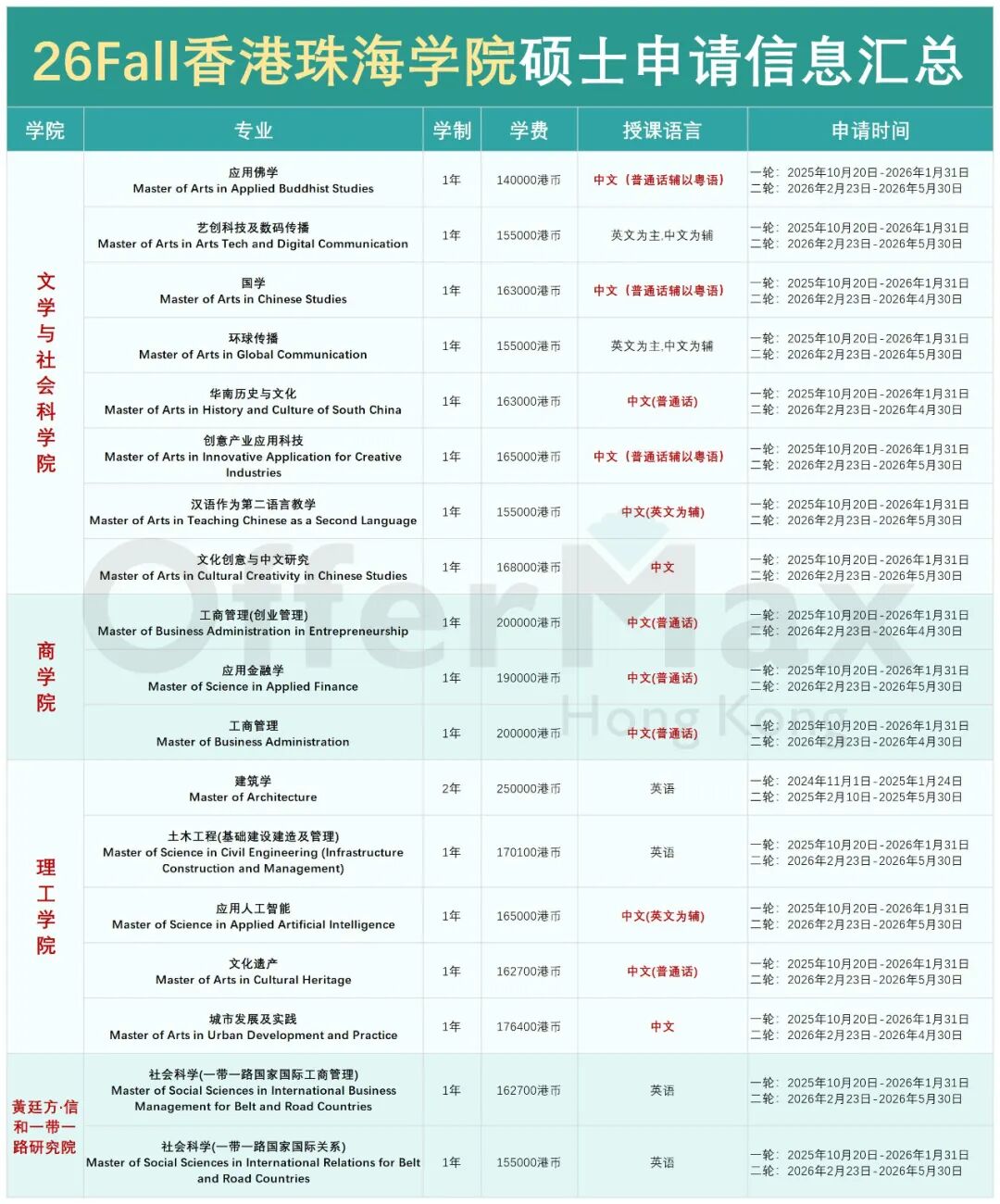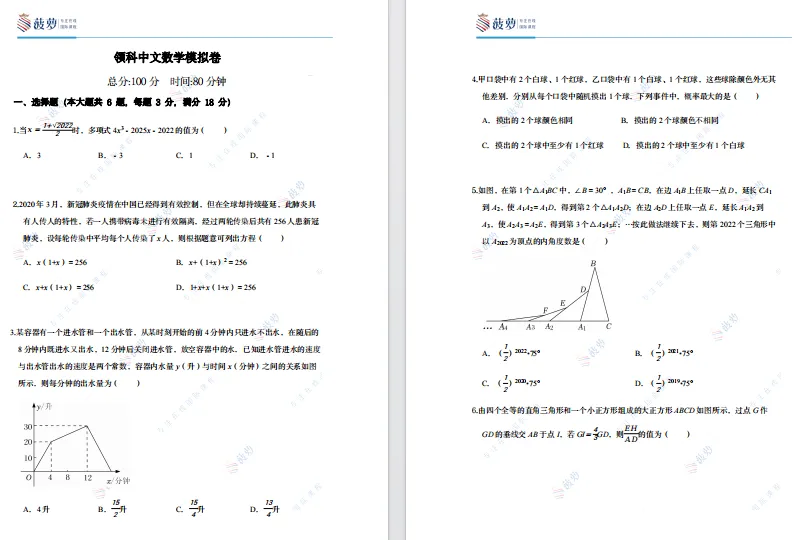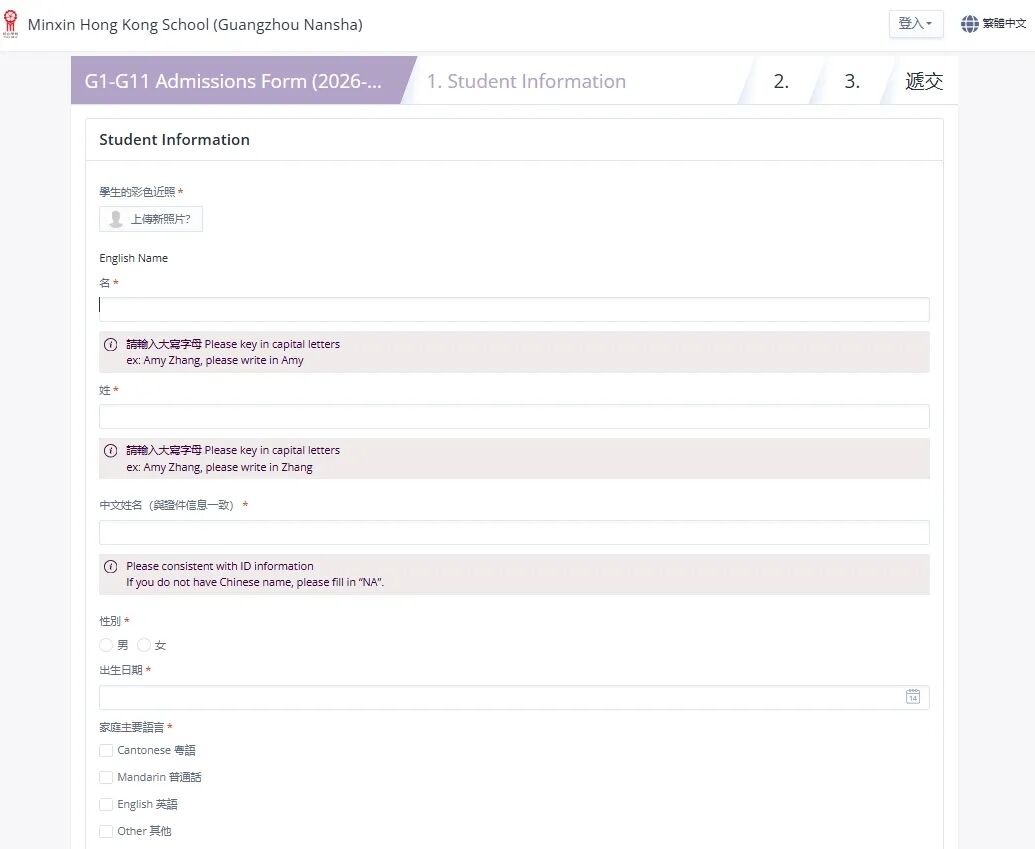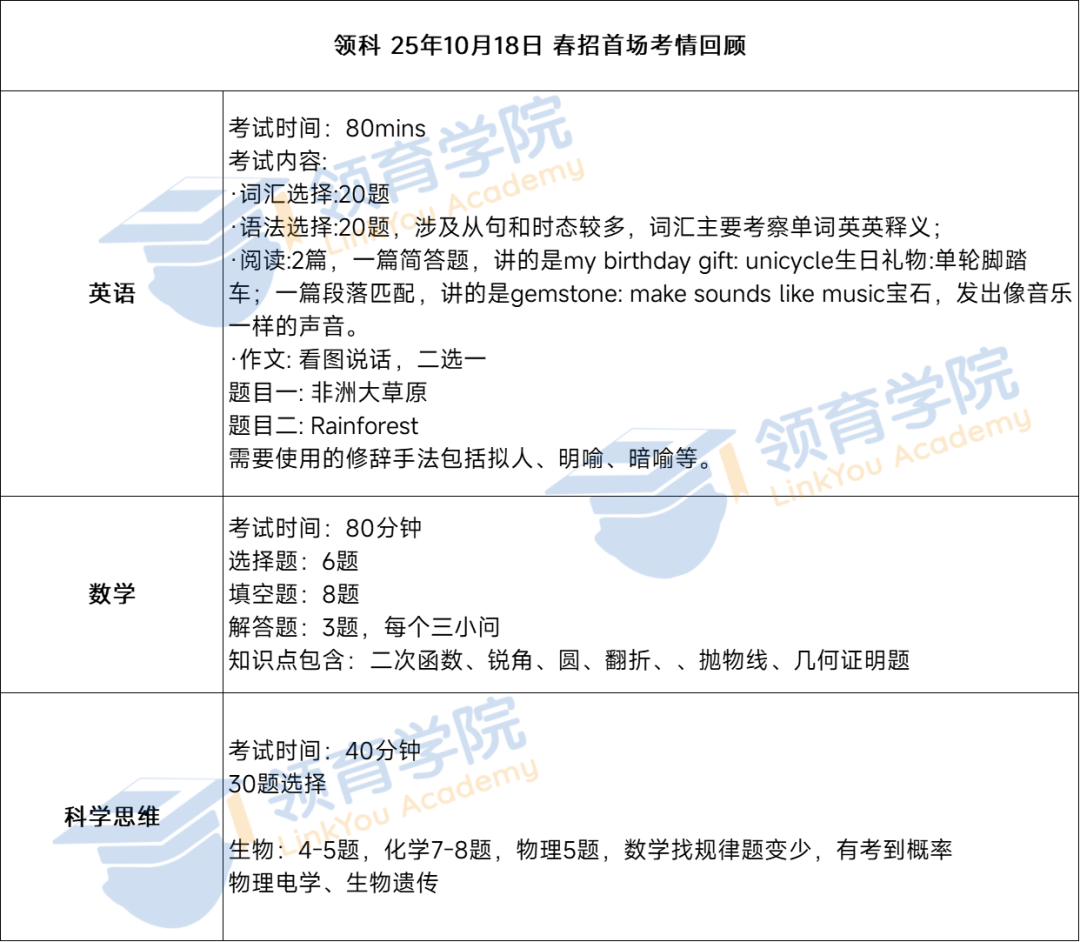今天我们为大家带来春季辩题Sample Case,从正反双方提供视角和思路,希望大家能够从中得到启发打开春季备赛思路~
接下来,让我们一起看看 今天Sample Case的具体内容吧~
Sample Case
PRO
We affirm. Resolved: In the United States, organized political lobbying does more harm than good. To begin, lobbying is defined by Duke Health Government Relations as including both direct and indirect, grassroots methods that attempt to influence legislation through communication with government employees or by influencing public opinion.1 The framework for the debate should be utilitarianism, an ethical system that values the greatest good for the greatest number of people. The pro wins if we prove political lobbies cause harm to more people than they benefit.
Contention 1 - Health
Subpoint A - Links
First, spending- healthcare lobbies more than any other industry. Wouters, a PhD in the Department Health at London School of Economics and Political Science in 2020 found that: “the pharmaceutical and health product industry recorded $4.7 billion—an average of $233 million per year—in lobbying expenditures at the federal level, more than any other industry… In years in which key state referenda on reforms in drug pricing and regulation were being voted on, there were large spikes in contributions to groups that opposed…”2 Second, healthcare prices.
Ubel, a physician & behavioral scientist at Duke University in 2021 argued the reason health care is so expensive in the US because healthcare lobbies have become too powerful and coopted the government.3 Third, universal coverage- healthcare lobbies blocked Medicare for all. Pear in 2019 explained that lobbies working for the healthcare industry keep Medical for All, an American version of universal health care, from ever becoming a bill in congress. They assembled an army of lobbyists including top lieutenants in the Democratic party to prevent major reforms to the US healthcare system.4 Fourth, lobbies keep the price of drugs high in three ways. According to the Citizens for Responsibility & Ethics in Washington in 2018: “Overall…the pharmaceutical lobby uses a variety of techniques to keep drug prices high, including opposing new legislation, protecting and expanding existing loopholes, and delaying the implementation of new regulations.”5
Subpoint B - Impacts
Preventable deaths. According to Herzlinger, a professor of business administration at Harvard, and Boxer, a professor at UCLA’s school of medicine in 2019:the US is the lowest ranked developed nation in preventable deaths.6 First, universal coverage. Galvani et. Al. in 2020 said:“Given that uninsured people experience a 40% elevation in age-specific mortality risk…on an annual basis, universal coverage would save 68,531 lives in the USA.”7 Second, high drug prices. The Council for Informed Drug Spending Analysis in 2020 calculated that: “112,000 seniors each year could die prematurely because drug prices…are so high…Medicare negotiation is projected to reduce drug prices…which could prevent nearly 94,000 seniors’ deaths annually.”8
Contention 2 - Military Industrial Complex
Subpoint A – Links
First- spending. Clifton in 2024 cautioned that:“federal funding for those five weapons companies grew by 188 percent…the weapons companies invested heavily to lobby members of Congress… those five firms spent over $1.1 billion on lobbying…”9 Second, Congress. Semler in 2022 stated that: lobbyists help write legislation by creating “actionable legislative requests for members of Congress…military contractors spent $119 million on 776 lobbyists- 231 more than there are members of Congress. (Two-thirds of the lobbyists had previously worked in government.)”10 Third, effectiveness. Semler again stated that:“Top congressional recipients of industry cash insist these donations don’t affect their decisions. However, House members who voted to boost military spending…received three times more money from military contractors than members who opposed it. Likewise, senators who backed the hike took seven times more arms industry cash…”11 Clifton in 2024 quantified the effectiveness of military industrial complex lobbying: “the top five weapons firms earned $1,813 in Pentagon contracts for every dollar spent on lobbying.”
Subpoint B – Impacts
First, war and terrorism. According to Hossein-Zadeh, a professor of economics at Drake University in 2006: “With every dollar, the US…manufactures new terrorists, which will…lead to demands for increased defense spending…The mere availability of planes and weapons is a temptation to use them…it’s enough to make the preparation for war an independent factor in creating it…Being prepared…becomes a pressure…for being at war…actual wars are needed…to generate ‘sufficient’ demand…It it…this business imperative of war that, more than any other factor, underlies the US militarists’ constant search for enemies, or new ‘threats…’”13 Second, magnitude and scope. Dr. Merceica, professor at Alabama A&T and president of the International Association of Educators for World Peace in 2002 concluded: The weapons industry is the greatest source of terror and death the world has ever known. It has caused more death in the last 50 years than all the massacres from the past 2,500 years. Panic and fear hypnotize us into believing that they contribute to our protection and security. Silence will lead to the deaths of millions as the weapons industry continues creating local, regional, and global conflicts.14
Works Cited
1.Duke Health Government Relations; No date listed (“Lobbying definitions, exceptions, and examples” https://govrelations.duke.edu/ethics-and-compliance/lobbying-definitions-exceptions-and-examples) Direct Lobbying: Any attempt to influence legislation through communication with: (i) Any member or employee of a legislative body, or(ii) any government official or employee(other than a member or employee of a legislative body) who may participate in the formulation of the legislation, but only if the principal purpose of the communication is to influence legislation. A communication with a legislator or government official will be treated as a direct lobbying communication, if, but only if, the communication: (i) refers to specific legislation, and (ii) reflects a view on such legislation. Grassroots Lobbying: An attempt to influence legislation through an attempt to affect the opinions of the general publicor any segment of the public. A communication with the general public will be treated as a grassroots lobbying communication if, but only if, it (i) refers to and reflects a view of specific legislation and (ii) encourages the recipient of the communication to take action with respect to such legislation by one of the following means: Stating that the recipient should contact legislators or other government employees who may participate in the formulation of legislation for the purpose of influencing legislation; Stating a legislator’s address, phone number, or similar information; Providing a petition, tear-off postcard, or similar material for the recipient to send to a legislator; or Specifically identifying one or more legislators who will vote on legislation as opposing Duke’s view on the legislation, being undecided about the legislation, being the recipient’s representative in the legislature, or being a member of the legislative committee that will consider the legislation. (Merely naming the main sponsor(s) of the legislation for purposes of identifying the legislation will not constitute encouraging the recipient to take action.) 2.Wouters, PhD Department Health London School of Economics and Political Science; 2020 (Olivier; JAMA Internal Medicine; 180:5; “Lobbying expenditures and campaign contributions by the pharamaceutical and health product industry in the United States”; https://jamanetwork.com/journals/jamainternalmedicine/fullarticle/2762509) From 1999 to 2018, the pharmaceutical and health product industry recorded $4.7 billion—an average of $233 million per year—in lobbying expenditures at the federal level, more than any other industry. Of the spending, the trade group Pharmaceutical Research and Manufacturers of America accounted for $422 million (9.0%), and the other 19 top companies and organizations in this industry accounted for $2.2 billion (46.8%). The industry spent $414 million on contributions to candidates in presidential and congressional elections, national party committees, and outside spending groups. Of this amount, $22 million went to presidential candidates and $214 million went to congressional candidates. Of the 20 senators and 20 representatives who received the most contributions, 39 belonged to committees with jurisdiction over health-related legislative matters, 24 of them in senior positions. The industry contributed $877 million to state candidates and committees, of which $399 million (45.5%) went to recipients in California and $287 million (32.7%) went to recipients in 9 other states. In years in which key state referenda on reforms in drug pricing and regulation were being voted on, there were large spikes in contributions to groups that opposedor supported the reforms. 3.Ubel, physician & behavioral scientist at Duke University; 2021 (Peter; Forbes; “Why is healthcare so expensive? Blame the lobbyists”; https://www.forbes.com/sites/peterubel/2021/04/09/why-is-healthcare-so-expensive-blame-the-lobbyists/?sh=e11cd1d32e71) American healthcare is ridiculously expensive. I even wrote a book recently laying out a host of reasons for such high prices, such as the historical connection between insurance and hospitals, the lack of price transparency, and the belated involvement of our federal government in healthcare policies. But mainlyit comes down to the power of hospitals, physicians, and the rest of the healthcare industry to co-opt almost a fifth of our economy. Recent data on healthcare lobbying perfectly illustrates just how much power I’m talking about. 4.Pear; 2019 (Robert; New York Times; “Health care and insurance industries mobilize to kill ‘Medicare for A’”; February 23; https://www.nytimes.com/2019/02/23/us/politics/medicare-for-all-lobbyists.html) WASHINGTON — Even before Democrats finish drafting bills to create a single-payer health care system, the health care and insurance industries have assembled a small army of lobbyists to kill “Medicare for all,”an idea that is mocked publicly but is being greeted privately with increasing seriousness. Doctors, hospitals, drug companies and insurers are intent on strangling Medicare for all before it advancesfrom an aspirational slogan to a legislative agenda item. They have hired a top lieutenant inHillary Clinton’s2016 presidential campaign to spearhead the effort. And their tactics will show Democrats what they are up against as the party drifts to the left on health care. They also demonstrate how entrenched the Democrats’ last big health care victory, the Affordable Care Act, has become in the nation’s health care system. The lobbyists’ message is simple: The Affordable Care Act is working reasonably well and should be improved, not repealedby Republicans or replaced by Democrats with a big new public program. More than 155 million Americans have employer-sponsored health coverage. They like it, by and large, and should be allowed to keep it. 5.Citizens for Responsibility & Ethics in Washington; 2018 (CREW; “A bitter pill: how big pharma lobbies to keep prescription drug prices high”; June 18; https://www.citizensforethics.org/reports-investigations/crew-reports/a-bitter-pill-how-big-pharma-lobbies-to-keep-prescription-drug-prices-high/) The pharmaceutical industry’s lobbying campaign is not restricted to general pricing issues. They also lobby on specific bills that attempt to deal with the problematic costs of prescription drugs. In order to learn more about how Big Pharma’s drug pricing lobby operates, CREW examined three recent attempts at legislation aimed at controlling drug prices: the Prescription Drug Affordability Act of 2015, the Medicare Prescription Drug Price Negotiation Act of 2017, and efforts to regulate orphan drugs. CREW also looked at how Big Pharma utilizes the “revolving door” between government agencies and lobbying firms to push back against new regulations. Overall, CREW found that the pharmaceutical lobby uses a variety of techniques to keep drug prices high, including opposing new legislation, protecting and expanding existing loopholes, and delaying the implementation of new regulations. 6.ReginaHerzlinger, Professor Business Administration @ Harvard, & Richard Boxer, Professor @ UCLA School of Medicine; 10/10/2019; Harvard Business Review; “The case for the public option over medicare for all”; https://hbr.org/2019/10/the-case-for-the-public-option-over-medicare-for-all Universal health care coverage is central to the physical, fiscal, and political well-being of a nation. Nowhere is that more evident than in the United States, the wealthiest nation in the world, which still has 28.3 million people without health insurance. Americans have literally died, gone bankrupt, become disabled, and stayed in dead-end jobs that offer insurance. And yet, despite the lack of universal coverage, the United States spends more as a percentage of GDP than any other nation and its quality of care is erratic. Even with its world-class resources and medical technology, it ranks the lowest among developed nations in avoiding preventable deaths. 7.Galvani, A. P., Parpia, A. S., Foster, E. M., Singer, B. H., & Fitzpatrick, M. C. (2020). Improving the prognosis of health care in the USA.The Lancet,395(10223), 524-533. proquest The life-saving potential of Medicare for All Beyond economic considerations, the paramount objective of a health-care system is to save lives. We projected the life-saving effect that the Medicare for All Act would achieve through the provision of health insurance for the currently uninsured (figure 4). From the prevalence of people without insurance in each age group (0–18, 19–24, 25–34, 35–64, and ≥65 years)55,60 and the age-specific population within,2 we calculated the number of uninsured people, collectively totaling more than 37 977 297 Americans. Given that uninsured people experience a 40% elevation in age-specific mortality risk,62 we calculated the expected number of deaths in each age cohort if all Americans became insured. We estimated that on an annual basis, universal coverage would save 68 531 lives in the USA. These are predominantly the lives of young people, given that most individuals older than 64 years are already covered under Medicare. Adults aged 25–35 years are disproportionately represented, accounting for more than 9 million of the uninsured. Based on the age distribution of these premature deaths that would be averted and their corresponding age-specific life expectancies, we calculated that universal coverage would save 1·73 million life-years annually. If the Affordable Care Act is repealed, 21 million Americans are predicted to lose health insurance coverage.4 Assuming this population is distributed by age proportional to those who are currently uninsured, elimination of the Affordable Care Act would result in the loss of 38 557 lives and 980 103 life-years, annually. 8.Council for Informed Drug Spending Analysis; 2020 (CISDA; “High drug prices and patient costs: Millions of lives and billions of dollars lost”; https://www.cidsa.org/publications/xcenda-summary) By 2030, on average: §112,000 seniors each year could die prematurely because drug pricesand associated cost-sharing are so highthat they cannot afford their medication. §Because high drug prices and patient costs mean seniors cannot afford their medications, Medicare is projected to spend an additional $17.7 billion annually on avoidable medical spending because of health complications. §Medicare negotiation is projected to reduce drug prices and seniors' cost-sharing, which could prevent nearly 94,000 seniors’ deaths annuallyand save $475.9 billion. 9.Clifton; 2024 (Eli; Responsible Statecraft; “Houthis were seconds away from hitting US destroyer: Report”; February 1; https://responsiblestatecraft.org/houthis-attack-ship/) And between 2002 and 2020, federal funding for those five weapons companiesgrew by 188 percent. In fairness, the weapons companies invested heavily to lobby members of Congressabout a variety of matters, including budget and appropriations issues impacting their bottom-lines. That wasn’t cheap. A compilation of data from lobbying disclosures archived atOpenSecretsshows that those five firms spent over $1.1 billion on lobbyingbetween 2001 and 2021. That number seems like a staggering sum to spend on influencing policymakers but it may have been the most financially prudent decision these companies have made in the past 20 years. 10.SEMLER; 2022 (Stephen; “How the military-industrial complex gets its power and harms workers, in 6 graphs”; October 13; https://jacobin.com/2022/10/pentagon-budget-military-contractors-lobbyists-biden) Arms industry lobbyists are a big reason why this sort of thing happenssooften. Once the president sends Congress a funding request, industry lobbyists swarm Capitol Hill. Among many other things, lobbyists translate military contractors’ broad, profit-driven interests into specific, actionable legislative requests for members of Congressto effect or support, like inserting, removing, or amending text in an authorization (policy) bill or adding or subtracting funds from a particular program in an appropriations (spending) bill. Just last year, military contractors spent$119 millionon 766 lobbyists — 231 more than there are members of Congress. (Two-thirds of the lobbyists had previously worked in government.) Among the most prolific corporate spenders on lobbying, four military contractors rank in the top ten and five in the top twenty. 11.SEMLER; 2022 (Stephen; “How the military-industrial complex gets its power and harms workers, in 6 graphs”; October 13; https://jacobin.com/2022/10/pentagon-budget-military-contractors-lobbyists-biden) Top congressional recipients of industry cashinsistthese donations don’t affect their decisions. However, House members who voted to boost military spendingto $778 billion for FY2022 receivedthree timesmore money from military contractors than members who opposed it. Likewise, senators who backed the hike tookseven timesmore arms industry cashthan those who cast “no” votes. Unlikelegislationfor social programs, Congress oftenaddsfunding to military bills after the initial proposal. For example, Biden put forward a$753 billionmilitary budget for fiscal year 2022, but thespending billhe received from Congress included$782 billionfor the Pentagon. The fiscal year 2023 Pentagon budget is following a similar trajectory: Biden asked for$813 billion, but the House approved$850 billion. 12.Clifton; 2024 (Eli; Responsible Statecraft; “Houthis were seconds away from hitting US destroyer: Report”; February 1; https://responsiblestatecraft.org/houthis-attack-ship/) Taken as a form of investment in procuring lucrative Pentagon contracts, the top five weapons firms earned $1,813 in Pentagon contracts for every dollar spent on lobbying. 13.Hossein-zadeh, Prof Econ @ Drake; 2006; The Political Economy of Militarism; 96-97 Led by the UnitedStates, military spending on a global level has risen by 18 percent since2001. According to a U.S. congressional study,terrorism has risen by 35 percent since then. From the fact that the increase in military spending has coincided with an increase in terrorism, Brandon J. Snider concludes,"With every dollar, the U.S., which accounts for 47 percent of the spending,manufactures new terrorists, which will, in turn,lead to demands for increased defense spending.39This positive correlation between military spending, war, and terrorism is not fortuitous. In his classic book on war and militarism, The Military-Industrial Complex, the late Sidney Lens explained this relationship in these words, "The mereavailability of planes and weapons is atemptation to use them. It may be a temptation which is acceded to in a minority of instances, butit’s enoughto make thepreparation for war an independent factor in creating it. . .Being preparedthusbecomes a pressure, a temptation,for being at war. The merry-go-round never stops."40 This is an essential dynamic of militarism. As discussed in the second chapter of this study, under precapitalist formations, all the military establishment needed to justify and maintain its apparatus and privileges was the specter of war or the environment of fear—not necessarily the actual, shooting war.Under capitalism, where production of military hardware is subject to market imperatives, actual wars are needed inorder to generate "sufficient” demandfor war-dependent industries and their profitability requirements. Perhaps more than anything else, it is this combination of private ownership of the means of warfare and market imperatives of profitability that drives the war today.It isalsothis business imperativeof war that, more than any other factor, underlies the U.S. militarists' constant search for enemies, or new "threats to our national security"—communism, rogue states, axis of evil, global terrorism, militant Islam, et cetera. Furthermore, it is this market-driven force behind the war that underlies, at least partly, the Bush administration's fuzzy and shifting "reasons" for invading Iraq, and the consequent death, destruction, and turbulence in today's world. Despite its apparent complexity, reducing international acts of terrorism and fostering global peace and stability would not be very difficult in the absence of this perverse dynamics of the business of war. As Brandon J. Snider points out,nations likeBritain andthe U.S. don'treallyhave to do anythingto fight terrorism; they only have to stop doing things that provoke terrorist responses: keep out of the affairs of other nations."41 14.Dr. Merceica, Prof @ Alabama A&T and Prez of Intl Assoc of Educators for World Peace; 2002; “Weapons Industry: Source of Terrorism”; 7/3l https://cc.bingj.com/cache.aspx?q=Weapons+Industry%3a+Source+of+Terrorism&d=4578572935318585&mkt=en-US&setlang=en-US&w=na-MzOVULqYiGFi-V5Cyhg9DAkNfFOxr At this stage of history,the weapons industry has emerged to become the worst source of terrorism that ever existed overthe past six thousand years ofrecorded history. The lethal weapons it has developed over the past fifty years alone, have killed more people than were ever massacred over the past 2,500 years, going back to the time of the Persian, Greek and Roman empires.What is amazing isnot the fact that such an industry has become the greatest terrorist organization in the world, butthatit succeeded to hypnotizeintelligent peoplefrom every walk of life and professioninto believing that its product contributes to theprotection and securityof our respective nations. Warranty of Death Such a lethal industry constitutes a warranty of death.Tens of millionsevery yearincur cancerbecause of toxic wastesit produces which poison our air, ourwater, andourland where we grow our food. As though this would not be enough,several groupsat the grassroots levelworkconstantlylike devilstocreateregionalconflictsasto justify the continued manufacture and sales of weapons of destruction. Their main tactic is fear, which has led manypeople to panicand which has haunted most government officials of the world’s leading nations.The weapons industryis determined to survive in its business till the end of times. Theonly waytoitsassured survival is the continued creation oflocal, regional and global conflicts. What is the difference between the massacre of 5,000 innocent civilians by a lawless group of virtually unknown origin and the massacre of 5,000 innocent civilians massacred by a legally existing agency known as the military? As far as the lives of innocent people are concerned, it does not make any difference at all. However, as far as our government officials are concerned, there is a great difference. In fact, US government officials had referred to the innocent civilians killed in New York and Washington, DC as “victims” while they viewed the innocent civilians killed in Afghanistan with American weapons merely as “collateral damage!” In other words, when the killing o the innocent comes from an unauthorized group, then we attribute that to an act of terrorism. On the other hand, when the killing of the innocent comes from an authorized group, such as the military, then we call that an act of duty and patriotism! The fact remains that when politicians fail to get what they want through political means, then they resort to the military, which is given the green light to perform any act of savagery and terrorism in the most brutal way one can possibly imagine. What is amazing is the fact to seehighly respected and intelligent professionalsin countries where this lethal and satanic industry exists,remainingsilent. They hardly ever even dream remotely to raise their voices to defend the helpless and the poor whose life is being truncated mercilessly by lethal products of the weapons industry. Why are not the medical doctors stepping out to talk loudly and boldly about the tremendous hazards the weapons industry is causing to the health of millions of people?
Sample Case CON
We negate. Resolved: In the United States, organized political lobbying does more harm than good. To begin, lobbying is defined by Duke Health Government Relations as including both direct and indirect, grassroots methods that attempt to influence legislation through communication with government employees or by influencing public opinion.1 The framework for the debate should be utilitarianism, an ethical system that values the greatest good for the greatest number of people. The con wins if we prove political lobbies help more people than they harm.
Contention 1-Democracy
Subpoint A - Links
First, participatory democracy. Cohen-Eliya & Hammer in 2011 wrote that:lobbying isn’t inherently bad. “Lobbying is an important vehicle for ensuring citizen participation in the democratic process and the exercise of constitutional rights, allowing a vibrant and participatory democracy.”2 Lobbyit in 2023 explained: grassroots lobbying in particular is “an essential part of the democratic process…Beyond sounding the alarm bell…grassroots lobbying serves the important function of educating the public…An informed citizenry provides a powerful check to legislators and agenda setters…”3 Second, representative democracy. Lyttleton in 2020 said: “the ability to lobby and petition politicians is enshrined in the…Constitution and is considered one of the fundamental rights…Without that right, the US is no longer a representative democracy.”4 Third, information.
Acccording to Krsmanovic in 2013: “[T]he main bargaining tool for professional lobbyists is actually information… in order for information to be useful for lobbying, it has to be accurate, unknown and politically beneficial… lobbyists strive to exercise influence by highlighting political benefits for decision makers. in most cases, being the only party who has information… gives bargaining power to lobbyists.”5 Furthermore, Newman et. Al. in 2020 argued that: “the most powerful form of lobbying is the supply of information on your case, and the issues surrounding it, on a regular basis to those within the decision process.”6
Subpoint B – Impacts
First, autonomy and equality. According to Cohen-Eliya & Hammer in 2011: “Democracy enables the realization of two values: First, it expands the autonomy of individuals to the sphere of collective decision-making, it enables collective self- determination. Second, democracy embodies the value of equality among individuals.”7
Second, democracy prevents most global problems. Pinker, a professor of psychology at Harvard in 2018 proved:“democracy is a major contributor to human flourishing….democracies…have higher rates of economic growth, fewer wars and genocides, healthier and better-educated citizens, and virtually no famines.”8 Finally, Salehyan, a professor of political science at the University of North Texas in 2007 stated: “[N]o democracy has ever experienced famine. Politicians who fear the wrath of voters usually do their utmost to prevent foreseeable disasters and food shortages.”9
Contention 2 - Generalized Alternative
Increased Regulations Solve
First, the revolving door. Cohen-Eliya & Hammer in 2011 explained that:
“Corruption of the democratic process resulting from job offers to decision-makers by lobbyist firms or corporations represented by lobbyists can be dealt with in two ways. The first is to set a long cooling off period… the extension of the cooling period—is an important tool in reducing corruption. The second solution addresses the source of another problem: the growing dependence…on campaign contributions…public funding of political campaigns …would reduce the politicians' dependence on lobbyists.”10
Second, competition. Cohen-Eliya & Hammer also showed how regulations could increase transparency and competition between lobbies: Regulations could require lobbies to update an internet site in real time that publishes all their written materials. This would not only reduce the cost of lobbying, one of the major obstacles to more competition between lobbies, but also increase transparency.11
Third, transparency. Holman & Luneburg in 2012 held that: “The regulation of lobbying may take a variety of forms… such as limiting political contributions..by lobbyists that may contribute to unequal access…whatever else lobbying regulation seeks to accomplish, enhancing transparency must be a foundational building block for the regulatory effort. Opening the books on lobbying activity and governmental policymaking is essential to reducing the opportunity…as well as the appearance of corruption.”12
Contention 3 -Alternate Cause
Campaign Contributions
First, campaign contributions are not a form of lobbying. Mayer in 2008 demonstrated that: “campaign contributions…re governed by a separate set of more restrictive rules supported in significant part by different concerns than those that underlie the laws governing lobbying generally.”13
Second, lobbies are not the problem- campaign finance laws are. According to Mahoney in 2009:“The reason why we see more undue influence of special interests in the US is not the failure of the lobbying disclosure and ethics regime, but rather our failure in the US to bring about real campaign-finance reform… In the US, 89% of corporations and 53% of trade associations succeed, while the majority of those fighting for the broader good – 60% of citizen groups and 63% of foundations – fail in their lobbying goals. This is because legislators in the US are beholden to the wealthy interests that will underwrite their next re-election bid.”14
Third, campaign contributions are more effective. Craig and Madland from the Center for American Progress in 2014 concluded that:“campaign contribution can directly affect policy outcomes…campaign donations play a role in winning government contracts and lowering tax rates… campaign contributions influenced votes on trade policy and banking regulations and that contributions from the banking sector were associated with a greater likelihood to vote for…bail[ing] out the largest U.S. banks…contributions have a significant effect on elections—particularly in shaping who will run in the first place. ‘The most powerful effect of money on elections is on the selection and competitiveness of challengers.’”15
Works Cited
1.Duke Health Government Relations; No date listed
(“Lobbying definitions, exceptions, and examples” https://govrelations.duke.edu/ethics-and-compliance/lobbying-definitions-exceptions-and-examples)
Direct Lobbying: Any attempt to influence legislation through communication with: (i) Any member or employee of a legislative body, or(ii) any government official or employee(other than a member or employee of a legislative body) who may participate in the formulation of the legislation, but only if the principal purpose of the communication is to influence legislation. A communication with a legislator or government official will be treated as a direct lobbying communication, if, but only if, the communication: (i) refers to specific legislation, and (ii) reflects a view on such legislation.
Grassroots Lobbying: An attempt to influence legislation through an attempt to affect the opinions of the general publicor any segment of the public. A communication with the general public will be treated as a grassroots lobbying communication if, but only if, it (i) refers to and reflects a view of specific legislation and (ii) encourages the recipient of the communication to take action with respect to such legislation by one of the following means:
Stating that the recipient should contact legislators or other government employees who may participate in the formulation of legislation for the purpose of influencing legislation;
Stating a legislator’s address, phone number, or similar information;
Providing a petition, tear-off postcard, or similar material for the recipient to send to a legislator; or
Specifically identifying one or more legislators who will vote on legislation as opposing Duke’s view on the legislation, being undecided about the legislation, being the recipient’s representative in the legislature, or being a member of the legislative committee that will consider the legislation. (Merely naming the main sponsor(s) of the legislation for purposes of identifying the legislation will not constitute encouraging the recipient to take action.)
2.Cohen-Eliya & Hammer; 2011
(Moshe & Yoav; William & Mary Policy Review; 2:265; “Lobbying and the democratic process”; https://papers.ssrn.com/sol3/papers.cfm?abstract_id=1945045)
But is lobbying inherently problematic? Despite its negative reputation, lobbying is an important vehicle for ensuring citizen participation in the democratic process and the exercise of constitutional rights, allowing a vibrant and participatory democracy. This article is based on the pluralistic theory of democracy, which views democracy as an arena in which interest groups struggle to attain the utmost realization of their interests. Accordingly, we reject the notion that lawmakers should pursue laws that realize the substantive interpretations of the "public interest" or the "common good". We adopt instead a minimalist approach —laws express the public interest to the extent that they mirror the interests of the majority of the citizens.
3.Lobbyit; 2023
(“Direct vs grassroots lobbying”; https://lobbyit.com/direct-vs-grassroots-lobbying/)
One thing is certain: Grassroots activism was and still is an essential part of the democratic processin the United States.
The Importance of Grassroots Lobbying to Democracy
Beyond sounding the alarm bellabout important issues, grassroots lobbying serves the important function of educating the publicon matters that affect them but which they otherwise might not know much about. Grassroots lobbyists help everyday citizens understand the substance and consequences of legislation in layman terms, and they help people understand the legislative process.
An informed citizenry provides a powerful check to legislators and agenda setterswho might otherwise try to push or prevent legislation right under the noses of an uninformed public.
4.Lyttleton; 2020
(Joseph Lyttleton; The Mill Source; “The influence of political lobbyists in Washington, DC, explained”; https://themilsource.com/2020/10/26/the-influence-of-political-lobbyists-in-washington-dc-explained/)
Yet, the ability to lobby and petition politicians is enshrined in theUnited States Constitution and is considered one of the fundamental rights of an American. Without that right, the US is no longer a representative democracy. That fact can make the debate over political lobbyists confusing and even a bit muddled.
5.Krsmanovic; 2013
(Dusko; A guidebook on lobbying; Konrad-Adenauer-Stiftung; https://www.kas.de/c/document_library/get_file?uuid=5f42c8b1-5ee1-a49a-ff7c-f9a73f158229&groupId=252038)
However, it is essential to understand that the main bargaining tool for professional lobbyists is actually informationin their possession, which is well described in the theory of access2. This theory emphasizes that eu institutions (especially the Commission) suffer from general lack of administrative capacity3 and political legitimacy4, and that both are compensated through interaction with interest representatives. in order for information to be useful for lobbying, it has to be accurate, unknown and politically beneficial5. Then, by careful alignment of particular private interests with general public interest, lobbyists strive to exercise influence by highlighting political benefits for decision makers. in most cases, being the only party who has information, or being the only party able to utilize it, gives bargaining power to lobbyists. At the same time this information must have the potential to produce political benefits.
6.Newman, et. Al.; 2020
(Bruce Newman, Wojciech Cwalina, Andrzej Falkowski, Todd Newman, & Magdalena Jablonska; The Palgrave Encyclopedia of Interest Groups, Lobbying and Public Affairs; “Political marketing”; https://dl1.cuni.cz/pluginfile.php/1147749/mod_resource/content/1/Newman2020_ReferenceWorkEntry_PoliticalMarketing.pdf)
McGrath (2007) believes that political lobbying can be considered as a form of political communication and – as Lock and Harris (1996) add – is a part of the broader field of public relations (see section Evolution of Lobbying). It is related to the fact that “stimulation and transmission of a communication, by someone other than a citizen acting on his/her own behalf, directed to a governmental decision-maker with the hope of influencing his/her decision” (McGrath, 2007, p. 273). And the most powerful form of lobbying is the supply of information on your case, and the issues surrounding it, on a regular basis to those within the decision process. According to Andrews (1996), lobbying means two things. First, lobbying is working the system, i.e., representations based on careful research, usually followed by negotiation with several elements of central or local government. Second, it means pressure on government, mobilization of public, and media opinion around a particular problem.
7.Cohen-Eliya & Hammer; 2011
(Moshe & Yoav; William & Mary Policy Review; 2:265; “Lobbying and the democratic process”; https://papers.ssrn.com/sol3/papers.cfm?abstract_id=1945045)
Our point of departure in the attempt to arrive at normative conclusions in relation to lobbying is the advantages of a democratic form of government over other forms. Democracy enables the realization of two values: First, it expands the autonomy of individuals to the sphere of collective decision-making, it enables collective self- determination.21 Second, democracy embodies the value of equality among individuals. When individuals living in a community cannot agree how to manage their lives in a polity, the right of equal say for every individual acknowledges the equal value of every person and recognizes the fact that every individual's good and every person's interest must be considered.22
8.Pinker 2018– Johnstone Professor of Psychology @ HarvardSteven,Enlightenment Now: The Case for Reason, Science, Humanism, and Progress,Penguin Press, Chap 14
One can think ofdemocracyas a form of government thatthreads the needle, exerting just enough force to prevent people from preying on each otherwithout preying on the people itself.A good democratic government allows people to pursue their lives in safety, protected from the violence of anarchy, andin freedom, protected from the violence oftyranny.For that reason alone,democracy is a major contributor to human flourishing. But it’s not the only reason: democraciesalsohave higher rates of economic growth, fewer wars and genocides,healthier and better-educated citizens,and virtually no famines.4 If the world has become more democratic over time, that is progress.
9.Salehyan 7(Idean, Professor of Political Science – University of North Texas, “The New Myth About Climate Change”, Foreign Policy, Summer, http://www.foreignpolicy.com/story/cms.php?story_id=3922)
To be sure, resource scarcityand environmental degradationcan lead tosocialfrictions.Responsible, accountablegovernments, however,can preventlocalsquabbles from spiraling intobroaderviolence, while mitigating the risk of some severe environmental calamities. As Nobel laureate Amartya Sen has observed,no democracy has ever experienced a famine.Politicianswho fear the wrath of voters usuallydo their utmost to preventforeseeable disasters andfood shortages. Accountable leaders are also better at providing public goods such as clean air and water to their citizens.
10.Cohen-Eliya & Hammer; 2011
(Moshe & Yoav; William & Mary Policy Review; 2:265; “Lobbying and the democratic process”; https://papers.ssrn.com/sol3/papers.cfm?abstract_id=1945045)
Corruption of the democratic process resulting from job offers to decision-makers by lobbyist firms or corporations represented by lobbyists can be dealt with in two ways. The first is to set a long cooling off period. In Canada, for example, the "cooling-off period" for bureaucrats and ministers is five years.45 In the U.S. the period has recently been extended to two years, despite strong opposition by many Congress members. 46 Kaiser shows that in the past it was customary for lobbying firms to pay the retired Congress member's salary during the one-year cooling period. Thus, multiplying the costs of employing a retired Congressperson—through the extension of the cooling period—is an important tool in reducing corruption. 47 The second solution addresses the source of another problem: the growing dependence of Congressmen on campaign contributions. Thus, Lessig advocates the public funding of political campaigns and allowing only small-dollar donations, measures that would reduce the politicians' dependence on lobbyists. 48 These solutions are appropriate in mitigating corruption and financial dependency, though we suspect that the likelihood of their success is low given the strong opposition of Congress members to the recent extension of the cooling period. 49
11.Cohen-Eliya & Hammer; 2011
(Moshe & Yoav; William & Mary Policy Review; 2:265; “Lobbying and the democratic process”; https://papers.ssrn.com/sol3/papers.cfm?abstract_id=1945045)
Research suggests that a major obstacle in creating competitive lobbying is the high information costs which groups have to incur when monitoring the lobbying activitiesof their competitors. 61 One way to reduce these costs is by requiring lobbyists to continuously publish on an internet site all written materials that they submit to lawmakers and to report all lobbying activity in real time.A simple, lowcost internet search by potential rival organizations can attract opposition to niche lobbying activities. A government or privately-run computerized system can be established to classify lobbying activities by subject-matter and send updates to potential rivals with an expressed interest in receiving said information. 62 Ongoing updating could increase the creation of rivalry amongst lobbyists and reduce the risks of uninformed decision-making.
This proposal builds on the logic of the recent amendment to the transparency requirements of the Lobbying Disclosure Act, which has cut by half the amount of time lobbyists are given to submit reports to the lobbyists' registrar.63 In the internet age there is no reason to refrain from requiring lobbyists to upload all written materials in real time. The loophole of course lies in the likelihood that lobbyists will prefer to informally disseminate information to lawmakers over dinner or in Congress' corridors. While this possibility cannot be ruled out, the chances for this to occur in highly complex and very technical niches are rather low. A significant part of the work of professional lobbyists is devoted to conducting and disseminating research and writing memos. 64 As noted in Part I, lobbyists provide legislative subsidy for already sympathetic lawmakers; thus, the receipt of written materials by the decision-maker is crucial in their gleaming knowledge about the subject-matter in the highly technical and complex niches.
Strict transparency policies have been criticized for two reasons: First, the dissemination of highly technical information without its processing in a userfriendly manner is ineffective and sometimes even counterproductive to the realization of the aims of many "targeted transparency" policies.65 Second, revealing large amounts of data without attaching related context might result in unjustified shaming of politicians and consequently unjustified reduction in the public's trust in Congress. 66 Yet, these objections are irrelevant within the context of the article's proposal. Publication of written lobbying materials on an internet site is designed to reduce informational and monitoring costs of primarily sophisticated players and special interest groups, who will know how to make use of this informationin order to protect their interests. The purposeof this proposal isobviously not to shame or sanction politicians, but rather to encourage rivalry and competition to ensure the public’s participation in the democratic process and narrow the risk of rent-seeking that is inherent in nontransparent lobbying.
12.Holman & Luneburg; 2012
(Craig & William; Interest Groups and Advocacy; Vol 1; March; “Lobbying and transparency: A comparative analysis of regulatory reform”; https://link.springer.com/article/10.1057/iga.2012.4)
The regulation of lobbying may take a variety of formsand seek differing goals, such as limiting political contributions from or bundled by lobbyists that may contribute to unequal accessto decision makers. However, the authors begin with the assumption that, whatever else lobbying regulation seeks to accomplish, enhancing transparency must be a foundational building block for the regulatory effort. Opening the books on lobbying activity and governmental policymaking is essential to reducing the opportunityfor corruption, as well as the appearance of corruption. With maximizing transparency in mind, the successes and failures of lobbying regulation both in North America and across Europe highlight several important elements that are necessary elements of an effective lobbying disclosure regime.
13.Mayer, Notre Dame Law School; 2008
(Lloyd Hitoshi; 26 Yale L & Pol’y Rev 485; “What is this ‘lobbying’ that we are so worried about?”;
https://core.ac.uk/download/pdf/268222355.pdf)
By focusing solely on the definition of lobbying, this Article necessarily does not explore certain related topics. It does not weigh the constitutional or public policy merits of the existing restrictions, but rather takes these restrictions as a given. 3 It also focuses on federal laws, although the analysis is also applicable to state laws governing lobbying. It does not cover laws relating to more specific situations, such as restrictions on using federal grants funds for lobbying, 4 restrictions on federally created or chartered organizations engaging in lobbying, 5 or the additional registration and reporting requirements for individuals and entities who lobby on behalf of foreign governments,'6 since each of those situations raise issues that do not apply to the more general laws governing lobbying.
7 Finally, this Article will only occasionally refer to the rules and definitions governing campaign contributions or independent communications meant to influence an election. Such activities are governed by a separate set of more restrictive rules supported in significant part by different concerns than those that underlie the laws governing lobbying generally.
14.Mahoney; 2009
(Christine, Professor Political Science @ Syracuse University; Politico; June 4; “Why lobbying in America is different”; https://www.politico.eu/article/why-lobbying-in-america-is-different/)
One of the biggest arguments against stricter lobbying regulations in the EU has been that strict rules do not work in Washington. Why, then, would they work in Brussels? This is faulty logic. The reason why we see more undue influence of special interests in the US is not the failure of the lobbying disclosure and ethics regime, but rather our failure in the US to bring about real campaign-finance reform.
A balancing act
Despite the fact that lobbying regulations are quite different, lobbying in the US and the EU is remarkably similar, with lobbyists in both capitals lunching with policymakers, shuttling drafts of legislationback and forth, and holding ‘informational conferences’in pleasant locations. The one big differencebetween the US and the EU is that the majority of policymakers in the EUinstitutions are not elected, andsince they do not need to stand for elections, they do not need to find the significant amounts of cash to support campaigns.
Instead of spending innumerable hours fundraising, they balance competing interests in an effort to produce policies that are seen as legitimate, though produced by a less-than-democratic supranational structure.
In the first large-scale comparative study of the two systems, researching the work of 150 lobbyists fighting over 47 different policy issues, half in the US and half in the EU, I found that the majority of advocates in the EU attained a compromised success – they got some of what they wanted, but so too did their opponents. Policy outcomes in the EU were more balanced; they took into consideration the input of all sides.
In the US, we see more winner-take-all outcomes, with some advocates getting everything they want, while others get nothing. If we break down lobbying success by the type of lobbyist, a more troubling picture emerges: we see that, more often than not, it is industry and business interests that win. In the US, 89% of corporations and 53% of trade associations succeed, while the majority of those fighting for the broader good – 60% of citizen groups and 63% of foundations – fail in their lobbying goals. This is because legislators in the US are beholden to the wealthy interests that will underwrite their next re-election bid. In the EU, we see that industry often wins as well (the success rates are 57% for trade associations and 61% for lobbying firms) but citizen groups and foundations fighting for the public good win at equal rates (56% and 67%). Policymakers in the EU do not need industry’s euros, so we do not see the same level of pandering to their interests.
15.Craig and Madland, Center for American Progress; 2014
(John & Daivd; CAP; “How campaign contributions and lobbying can lead to inefficient economic policy”;
https://www.americanprogress.org/article/how-campaign-contributions-and-lobbying-can-lead-to-inefficient-economic-policy/)
Several researchers have found that campaign contributions can directly affect policy outcomes. In addition to the previously mentioned finding that campaign donations play a role in winning government contracts and lowering tax rates, scholars have found that campaign contributions influenced votes on trade policy and banking regulations and that contributions from the banking sector were associated with a greater likelihood to vote forthe Emergency Economic Stabilization Act of 2008, which bailed out the largest U.S. banks.
Recent and particularly relevant research by Timothy Werner—assistant professor of business, government, and society at the University of Texas—and John J. Coleman—the chair of the department of political science at the University of Wisconsin—found that when stronger campaign finance laws are enacted on the state level, new pro-management, anti-takeover laws are less likely to be enacted. Anti-takeover laws are management-friendly rules that make it harder for shareholders to change the management of a corporation. Not surprisingly, existing managers should have close to a consensus view on anti-takeover laws, since such laws keep their jobs safe.
The fact that allowing more money into state elections is connected with a near-universal management preference is consistent with the idea that businesses will take advantage of weak campaign finance rules and use corporate resources to pursue policy objectivesthat provide narrow benefits to them but not to the economy.
The research by Werner and Coleman also helps illustrate the kind of policy outcomes that campaign contributions are most likely to influence. The authors noted that in contrast to obscure policies such as anti-takeover rules, legislators’ voting behavior is unlikely to be swayed by campaign contributions for highly salient and widely understood issues.
Earlier studies support the position that campaign contributions are less likely to change voting patterns for visible and ideological issues. But this finding does relatively little to assuage concerns about rent-seeking. The special interest tax breaks and agency regulations that are the targets of rent-seeking behavior are not always of the visible and ideological variety.
In addition to being less likely to affect publicly salient issues, Werner and Coleman find that campaign finance laws do not exert much direct influence on the partisan outcomes of elections. Similarly, other researchers have noted the difficulty of determining whether money causes electoral victories or the likelihood of winning induces campaign contributions by donors who want to support the winner.
Still, contributions have a significant effect on elections—particularly in shaping who will run in the first place. “The most powerful effect of money on elections is on the selection and competitiveness of challengers,” according to the report for the Task Force on Inequality and American Democracy of the American Political Science Association. The fact that contributions have a greater effect on the types of candidates who run for office than on the partisan outcome of the election is consistent with the idea that donations are most useful on issues that are less noticed by the average voter.













